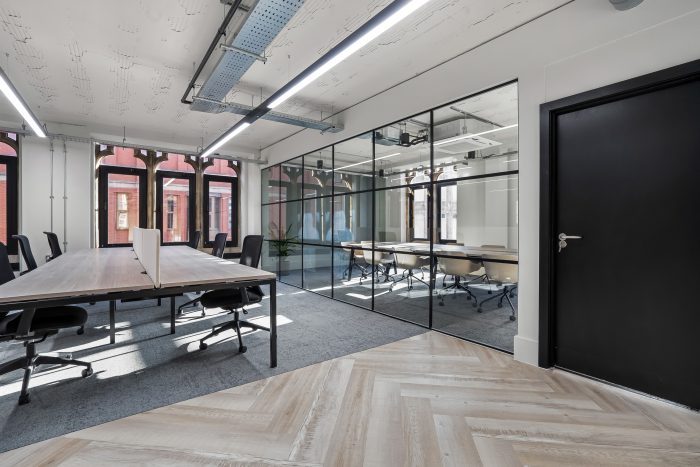Free-to-attend showcase returns to celebrate Lincolnshire’s business community
Inflation continues to rise
Doncaster SMEs access UKSPF funding
Small and medium-sized businesses in Doncaster are using UK Shared Prosperity Fund support to improve productivity, adopt digital solutions, and implement low-carbon practices.
The funding, provided through the Low Carbon Project and the Productivity and Digitisation Grant, has enabled local companies to invest in technology upgrades, streamline operations, and reduce environmental impact. Business Doncaster and the South Yorkshire Mayoral Combined Authority provided advisory support to guide applicants through the process and ensure projects meet eligibility requirements.
Applications remain open for initiatives that can be completed by the end of December. Each submission is assessed individually to confirm alignment with funding criteria.
2-Work expands Leeds city centre presence
Flexible workspace provider 2-Work will open a new office in Leeds city centre at Albion Court, a Grade II listed building with gothic revival architecture. The space, named 2-Work St. Albions, is scheduled to launch at the end of September and will offer 8,000 sq ft across two floors. Facilities include coworking areas, meeting rooms, and private offices designed for start-ups, growing businesses, and established teams.
The development follows a design-led refurbishment of the former church institute and is located close to Leeds rail station and the main shopping district. The launch increases 2-Work’s footprint in Leeds to four sites, with an additional location at Tileyard North in Wakefield.
The expansion responds to growing demand for flexible, community-oriented office space that supports hybrid working and SME growth. Leeds is currently the sixth most popular city in the UK for coworking spaces.
The project is delivered in partnership with building owner Glenbrook, aiming to enhance the amenities and workspace options available to tenants at Albion Court.
SMEs offered new AI readiness workshops
Connectus Business Solutions and Automated Analytics have launched a series of free workshops to guide SMEs on adopting Artificial Intelligence (AI). The sessions are intended for business leaders and decision-makers and will provide practical guidance on implementation, regulatory compliance, cost management, and workforce considerations.
The workshops start on 18 September 2025 at Castle Park, Doncaster, with additional sessions scheduled across the north of England and the Midlands throughout the second half of the year. Attendees will have access to post-workshop resources, case studies, and sector-specific examples to support ongoing AI integration.
Industry data shows AI adoption among UK SMEs is increasing, with 45% of small businesses and 65% of medium-sized businesses expected to implement AI solutions by mid-2025. However, surveys indicate almost half of SME leaders feel unprepared due to gaps in skills, support, or confidence. Previous adopters report productivity improvements of up to 133%, with AI expected to contribute £78 billion to the UK SME economy over the next decade.
Connectus has supported more than 500 SMEs across Doncaster, Salford, Lincolnshire, and the Midlands. Recent infrastructure investments, including a £500,000 fibre upgrade at Doncaster Airport Business Park, are intended to strengthen digital capacity for AI applications.
Workshops will focus on practical AI adoption strategies, demonstrating automation opportunities, decision-support tools, and approaches to mitigate operational disruption.
Skipton Business Finance appoints chief operating officer
Yorkshire housebuilder donates £20,000 to health and wellbeing charities
Leeds pharmacy changes hands in strategic sale
Seacroft Pharmacy, a community pharmacy on Leeds’ A64/York Road, has been acquired by an expanding West Yorkshire operator. The pharmacy, operating standard hours in a two-storey retail unit, dispenses approximately 5,761 items per month and is located near a large medical practice.
The business was owned by Pharm-Assist (Healthcare) Ltd since 2008. Following a strategic review of its portfolio, the company appointed Christie & Co to manage a confidential sale process. The transaction attracted multiple competitive offers.
The pharmacy has been purchased by Jeet Vadodaria, marking his third acquisition in the region. The deal was facilitated with funding arranged through Christie Finance. Vadodaria’s acquisition is structured as a joint venture with first-time buyer Mohammad Khabib Ali.
The purchase forms part of a broader expansion strategy, with the Leeds site intended to operate as a local branch linked to a new West Yorkshire hub. Operational plans include utilising the hub to manage some dispensing tasks, allowing in-pharmacy staff to focus on patient engagement and service delivery.
Leeds Digital Festival marks 10th year with expanded programme
Leeds Digital Festival will return from 22nd September to 3rd October 2025, marking its 10th edition. The festival is set to host over 230 events across the Leeds City Region, covering Bradford, Calderdale, Kirklees and Wakefield.
Since its launch, the festival has grown into the UK’s largest open-platform tech event outside London, showcasing more than 2,000 events organised by over 800 companies. The 2025 programme will include sessions on artificial intelligence applications in marketing, SEO, financial services and healthcare, alongside topics in emerging technologies, skills development and entrepreneurship.
This edition will be the final under Stuart Clarke MBE as festival director. Clarke, involved since the festival’s inception, will transition to a non-executive role as chair. Deb Hetherington will take over as festival director.
Confirmed venues include Nexus at the University of Leeds, Platform, Avenue HQ and Department at Leeds Dock. The full programme will be published on 26th August.
Sponsors supporting the 10th festival include PEXA, CGI, Skipton Group, Accenture, Lloyds Banking Group, Genio, Nexus, Leeds City Council and the city’s three universities, alongside a network of associate partners.
The festival aims to highlight regional innovation, support collaboration, and provide opportunities for investment and skills development across the North of England’s digital sector.












